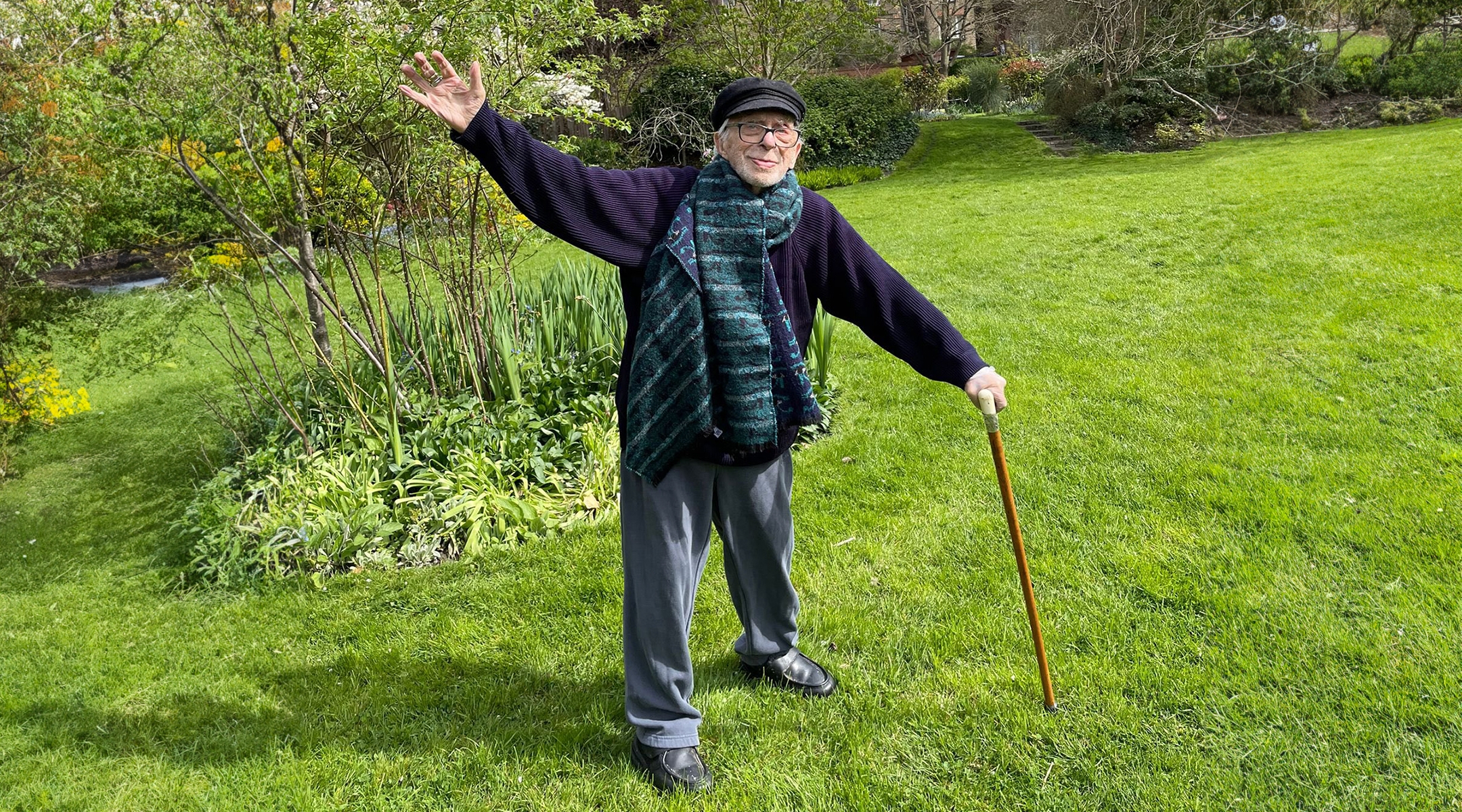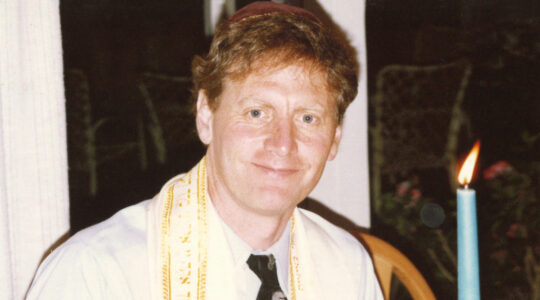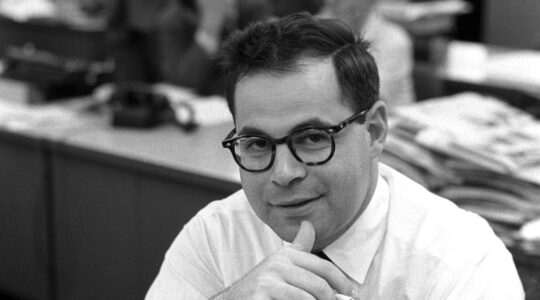This article is also available as a weekly newsletter, “Life Stories,” where we remember those who made an outsize impact in the Jewish world — or just left their community a better or more interesting place. Subscribe here to get “Life Stories” in your inbox every Tuesday.
Bernard Kops, 97, a bard of London’s Jewish East End
Bernard Kops was one of the leading British dramatists of the second half of the 20th century, writing more than 40 plays after his 1958 breakout success, the “kitchen sink” drama “The Hamlet of Stepney Green.” His great subject was London’s East End, the Jewish immigrant enclave where he was born in 1926 to Dutch-Jewish parents.
His publisher, David Paul, described Kops as “the last of the celebrated crop of Jewish writers that emerged in the 1950s out of the Jewish East End such as [Harold] Pinter and [Arnold] Wesker.” Kops died Sunday at age 97, surrounded by family. “Family is the only essential thing and the thing that can survive,” he told the New York Jewish Week in 2013.
Lord Jacob Rothschild, 87, banker who carried on a family legacy of support for Israel
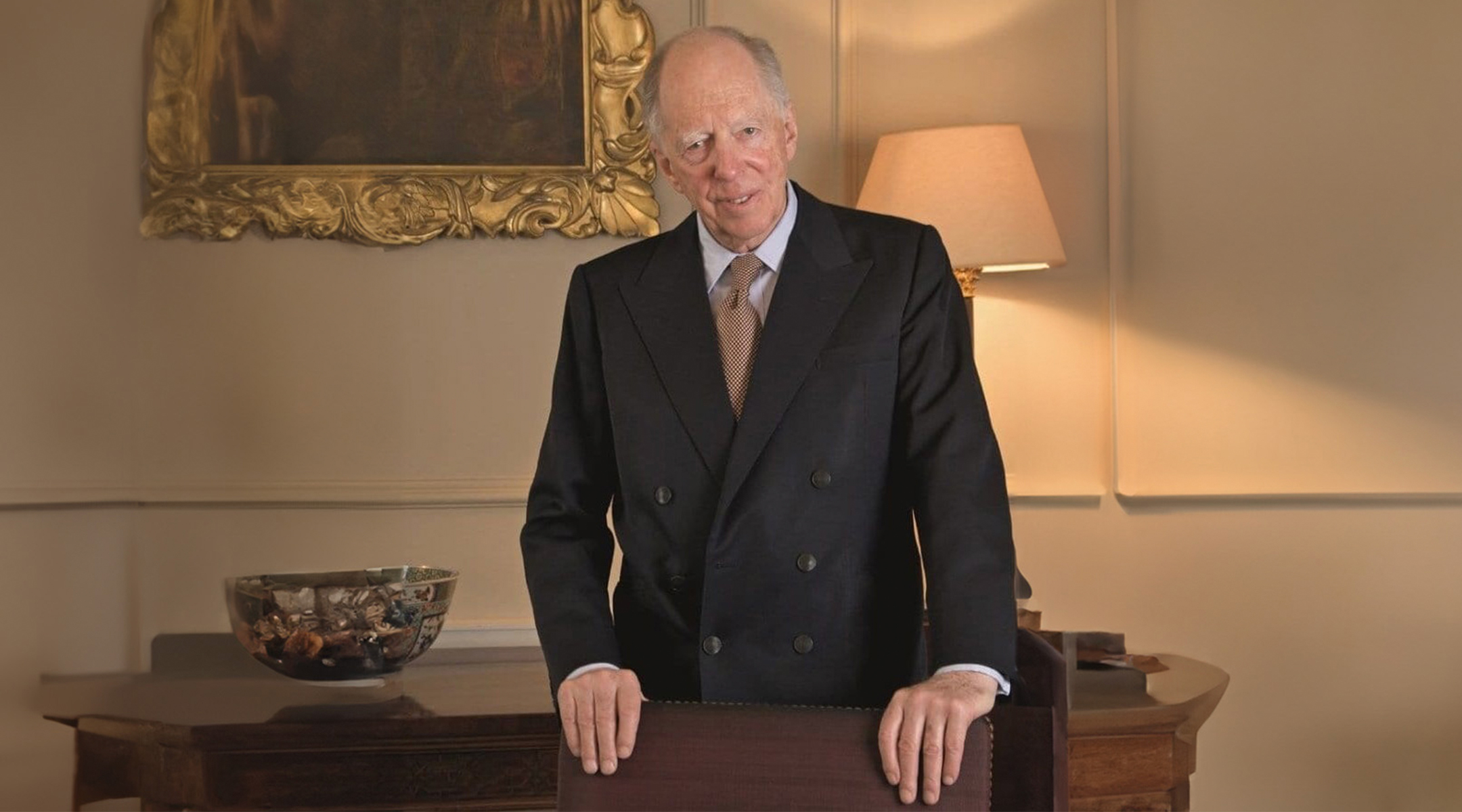
Lord Jacob Rothschild was known for his for philanthropy and support for Israel. (Hugh Palmer/Ramat Hanadiv)
British financier and philanthropist Nathaniel Charles Jacob Rothschild, 87, who as chair of the Yad Hanadiv Foundation supported educational, civil society and environmental projects in Israel, the country’s National Library, the Supreme Court building in Jerusalem and opportunities for Israel’s Arab community, died Feb. 26.
A direct descendant of Mayer Amschel Rothschild, the founder of the famed European banking family, Rothschild began his career at the family bank and went on to co-found a number of investment firms. As a patron of the arts, he was chairman of trustees at The National Gallery and chairman of The National Lottery Heritage Fund. His daughter Hannah, who succeeded him as chair of Yad Hanadiv in 2018, will also chair the Rothschild Foundation.
“Lord Jacob Rothschild will be remembered as a most extraordinary philanthropic leader whose generosity was surpassed only by his humility,” said the British Chief Rabbi, Ephraim Mirvis.
David Edri, 68, an Oct. 7 survivor and husband of ‘Cookie Rachel’

David and Rachel Edri, at right, who survived a 20-hour hostage situation during the Hamas attack in southern Israel, meet with British Foreign Secretary James Cleverly, second from left, at their home in Ofakim, Israel, Nov. 10, 2023. (Simon Dawson/No 10 Downing Street)
David Edri survived Oct. 7 thanks to the quick thinking of his wife, Rachel, who has become widely known as the brash grandmother from Ofakim who staved off their Hamas attackers with cookies. “She drove them crazy,” David told Israeli media at the time. “She kept asking them if they want something.”
David Edri, a retired truck driver, died Monday at 68. The family is sitting shiva in Ofakim, according to an announcement that Rachel Edri posted with a broken-heart emoji on Instagram, where she has amassed a following after launching an account in December with her cookie recipe.
Shelly Weiss, 77, a ‘queer icon’ and mentor to Jewish progressives
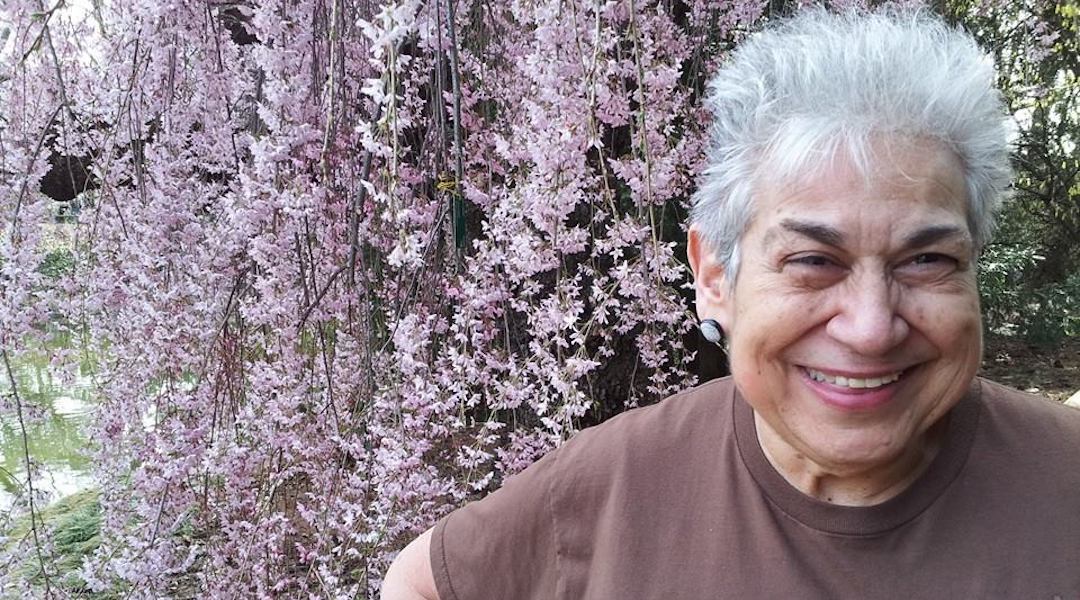
Shelly Weiss, a longtime political and LGBT activist, was raised working class in Brownsville, Brooklyn. (Via Facebook)
Shelly Weiss, a political activist who promoted LGBTQ awareness in the arts, died Feb. 22. She was 77. A lifelong Brooklynite, Weiss was the founder of OUTMedia, which booked LGBTQ performers at college campuses. “I realized that the arts were a prime vehicle to change consciousness,” she said in a 2015 interview with the Keshet blog.
She also mentored members of Jews for Racial & Economic Justice, a Brooklyn-based progressive group. “She was a queer icon who reminded us always that the personal is political, and she was a really really great hugger,” JFREJ wrote on Instagram.
Ruth Fein, 96, ‘giant of the Boston Jewish community’
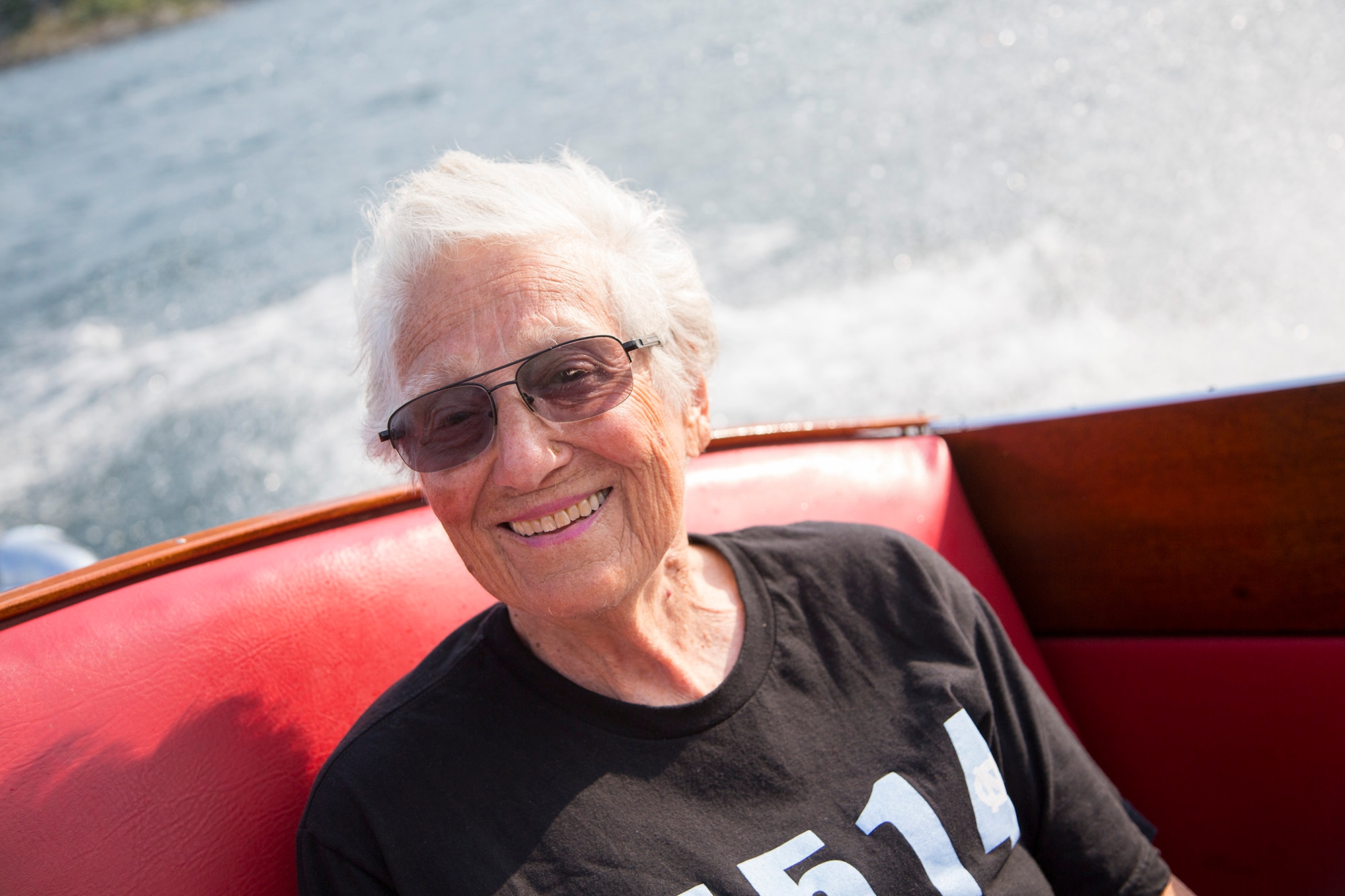
Ruth Fein, the first woman to chair Boston’s Combined Jewish Philanthropies, enjoys a boat ride in Lake George, New York. (Michael Fein)
Ruth Fein, who shattered the glass ceiling as the first woman chair of Boston’s Jewish federation and served as president of the Jewish Community Relations Council of Greater Boston, died at her Boston home on Feb. 18. She was 96. The daughter of a rabbi, she was “an absolute giant of the Boston Jewish community,” said Jeremy Burton, JCRC’s current executive director. He noted her pivotal roles in establishing the organization’s literacy coalition and the New England Holocaust Memorial.
She was also a founding director of the Jewish Women’s Archive, and the first woman president of the American Jewish Historical Society, which has named an annual prize in her honor.
Shalom ‘Charlie’ Biton, 76, the Israeli ‘Black Panther’ who fought for Mizrahi rights

A portrait of Charlie Biton at the start of the Israeli Black Panther movement in 1971. (Courtesy of Meir Wigoder)
Israeli authorities were terrified when, in the early 1970s, Shalom “Charlie” Biton and his fellow Mizrahi Jewish activists took the name “Black Panthers” from the militant African-American group.
For the next two years, the Panthers continued to shock and provoke in their effort to bring attention to the poverty and discrimination faced by Jews from the Middle East and North Africa at the hands of the Ashkenazi elite. In one of their most famous stunts, the Panthers stole bottles of milk from homes in the upscale Rehavia neighborhood of Jerusalem and delivered them to a poor, mostly Mizrahi slum. “We hope this operation inspires you to contribute to the war on poverty,” read the note they left behind.
Such actions propelled Biton into the Knesset, where he served 15 years as a member of the far-left Hadash party. He was also an early proponent of compromise with the Palestinians and the first prominent Israeli to meet with Yasser Arafat.
Biton “didn’t just pursue justice — he was justice,” said Benny Gantz, a former minister of defense now serving in Israel’s war cabinet.
Biton died Saturday at age 76. JTA’s own Asaf Elia-Shalev, who has written a soon-to-be-released history of the Black Panthers, remembers Biton’s life and legacy.
JTA has documented Jewish history in real-time for over a century. Keep our journalism strong by joining us in supporting independent, award-winning reporting.
